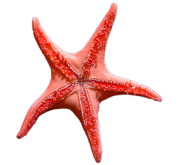Alaska SeaLife Center and U.S. Fish and Wildlife Service - Team Works to Understand Cause of Increased Sea Otter Deaths October 8, 2015
|
CONTACT: |
|
Team Works to Understand Cause of Increased Sea Otter Deaths
Public Asked to Report Animals Found and Not Approach
Anchorage, Alaska (October 8, 2015)– More than 200 dead or sick sea otters have been reported on beaches in the Kachemak Bay region in 2015. Similar cases in the past have been linked to streptococcus related illnesses. A team of experts from the U.S. Fish and Wildlife Service, the Alaska SeaLife Center, Alaska Veterinary Pathology Services, and the USGS National Wildlife Health Center are working to understand what has caused the spike in sea otter deaths and potential significance to the population. Despite the ongoing investigation, including exams and tests on the carcasses, the cause of death for many of the sea otters remains unknown.
Sea otters are aquatic animals and normally do not spend much time on land. If a sea otter is found on the beach, it is likely to be sick or injured and should not be approached. The Alaska SeaLife Center operates a 24-hour hotline for the public to report stranded marine mammals or birds, and encourages people who have found a stranded or sick marine animal to avoid touching or approaching the animal. Call first! 1-888-774-SEAL
Be prepared to provide:
· Exact location
· Date and time of encounter
· Number and type of animals involved
· A description of the condition of the animal(s)
· Any available digital photographs of the animal(s)
To learn more about the Alaska SeaLife Center, visit www.alaskasealife.org.
Learn more about sea otters, visit: http://1.usa.gov/1RwjIg9

